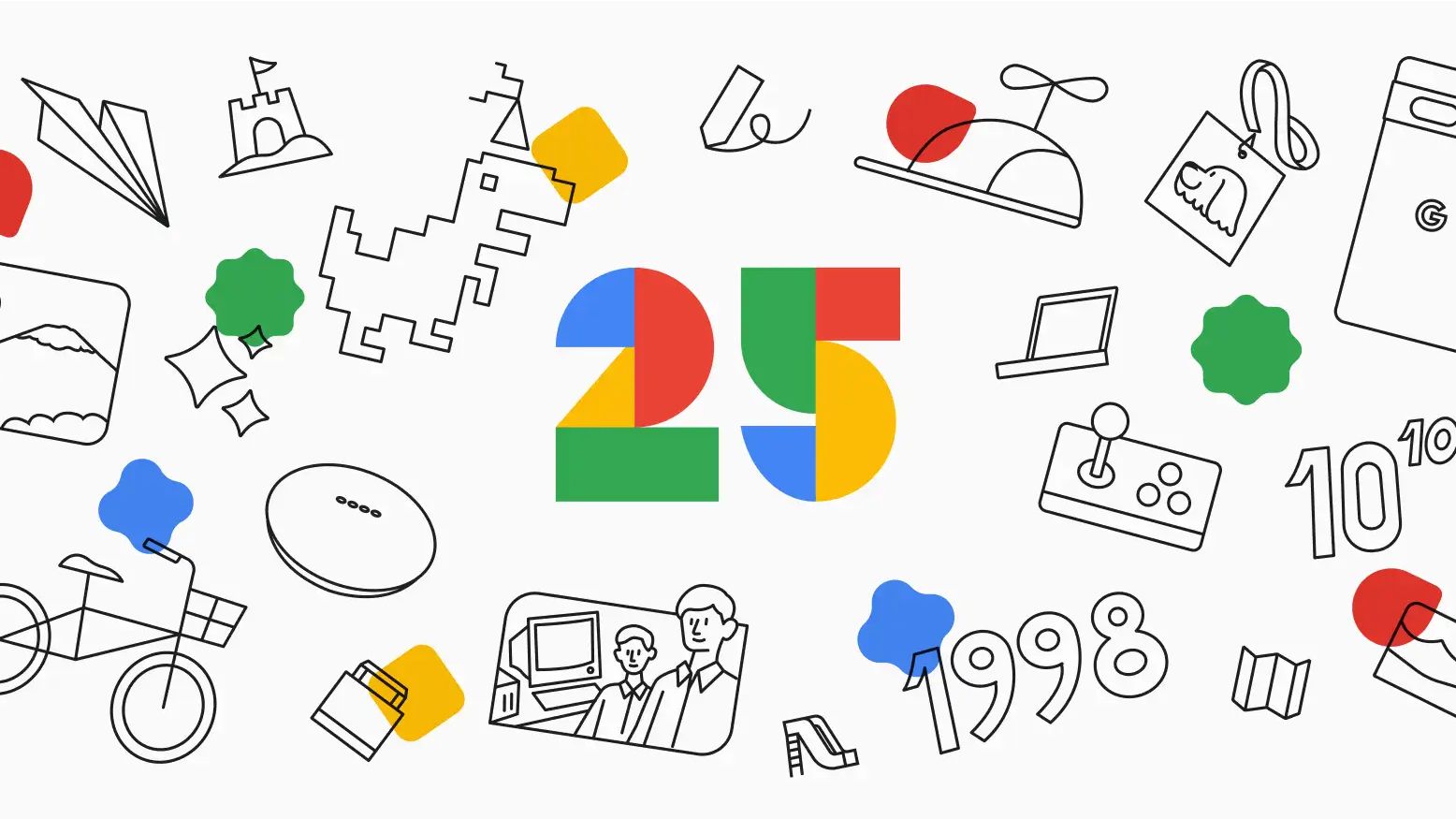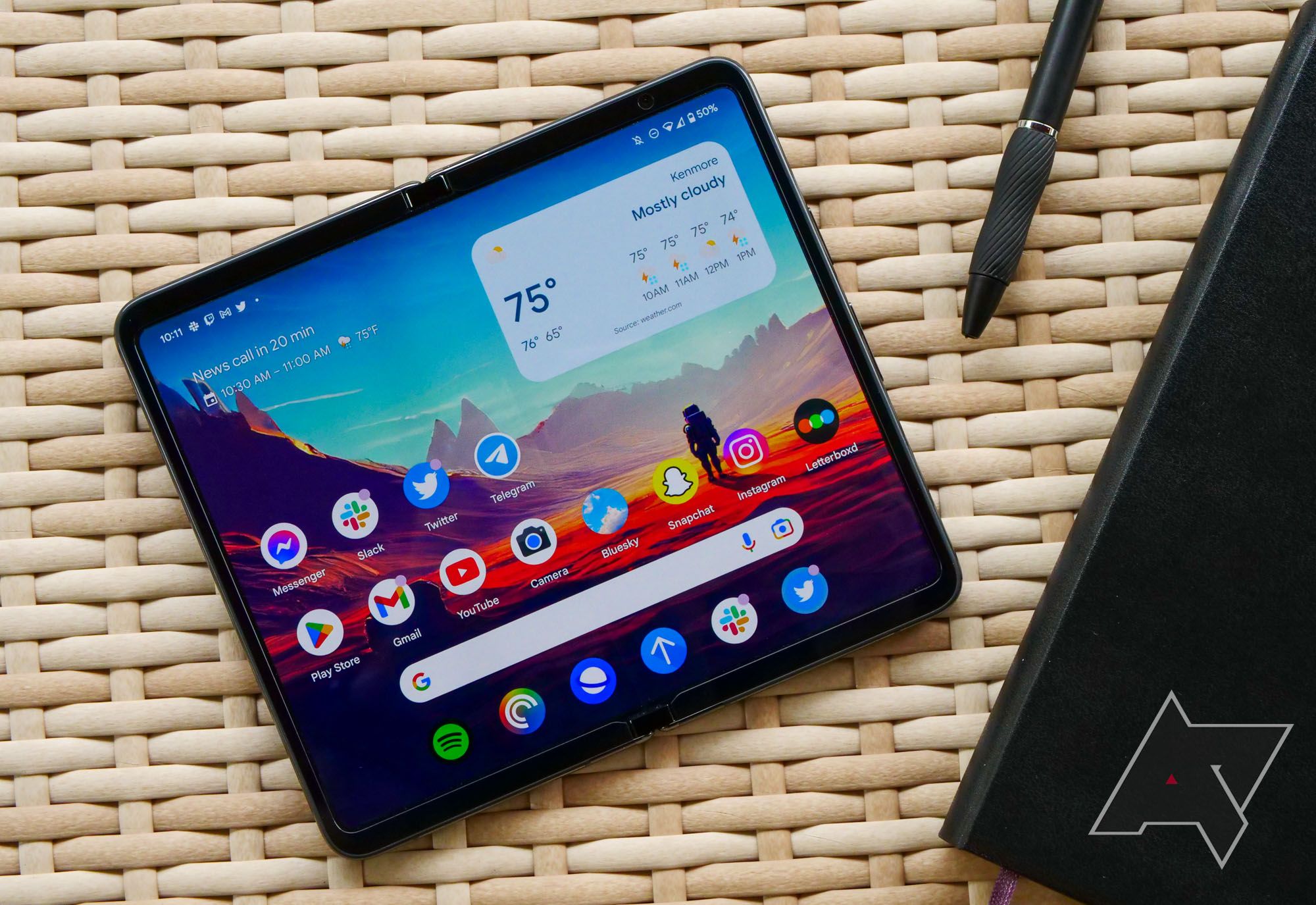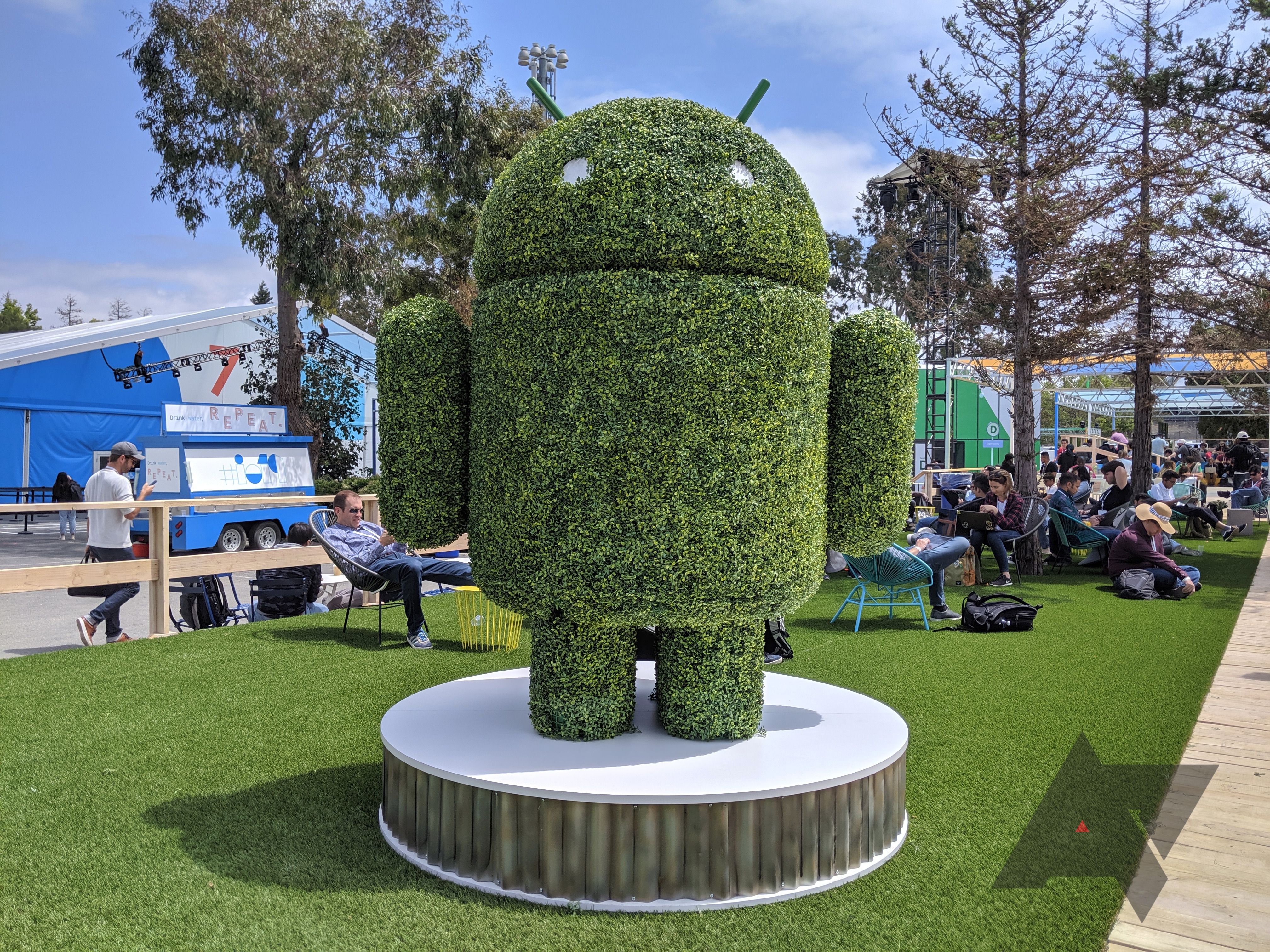Review sản phẩm
Google trong 25 năm tới sẽ trông như thế nào?
Giới thiệu What will the next 25 years of Google look like?
Bước vào giai đoạn tiếp theo, Google đã và đang định hình tương lai với những ước mơ và khám phá không giới hạn. Góp phần mang lại sự tiện ích và cải thiện cuộc sống hàng ngày của hàng tỉ người trên khắp thế giới, Google không ngừng nỗ lực để thay đổi và cải tiến. Với những công nghệ cắt cổ trong lĩnh vực trí tuệ nhân tạo, thực tế ảo và cách tiếp cận hiện đại, bạn sẽ cảm nhận một khả năng sống mới trong thế giới 25 năm tiếp theo của Google.
#QueenMobile: Đánh giá Sản phẩm & Mua ngay!
Tròn 25 năm kể từ khi Google trở thành công ty công nghệ hàng đầu thế giới, không ai có thể đoán được những gì sẽ diễn ra trong tương lai. Tuy nhiên, chúng ta có thể hình dung một số kịch bản có thể xảy ra trong 25 năm tới.
Vẫn tiếp tục đứng đầu về công nghệ tìm kiếm, Google có thể tiến thêm một bước ngoặt đột phá. Trọng tâm sẽ dồn vào việc phát triển trí tuệ nhân tạo (AI) và học máy (Machine Learning), giúp người dùng tìm kiếm thông tin độc đáo và chính xác hơn. Google có thể đưa ra những gợi ý cá nhân hóa dựa trên quá trình học từ những tương tác trước đó của người dùng. Điều này sẽ mở ra một thế giới tìm kiếm thông tin tiện nghi và tốt hơn.
Đánh giá sản phẩm sẽ trở nên càng quan trọng hơn trong tương lai. Người dùng ngày càng muốn biết ý kiến thực về một sản phẩm trước khi quyết định mua hàng. Vì vậy, Google có thể phát triển một hệ thống đánh giá sản phẩm mạnh mẽ và đáng tin cậy. Hệ thống này sẽ sử dụng AI để phân tích hàng ngàn đánh giá từ người dùng khác nhau và đưa ra kết luận tổng quan về một sản phẩm cụ thể. Điều này giúp người dùng đưa ra quyết định mua hàng thông minh và dễ dàng hơn bằng cách truy cập vào thông tin đáng tin cậy từ đánh giá của người dùng khác.
Queen Mobile – một cửa hàng di động uy tín, có thể tận dụng thế mạnh của Google để cung cấp những đánh giá sản phẩm chính xác và tin cậy. Điều này giúp khách hàng của Queen Mobile có thể tìm hiểu về các sản phẩm di động và lựa chọn một cách tự tin. Không chỉ đáng tin cậy trong chất lượng sản phẩm, Queen Mobile còn cung cấp dịch vụ sau bán hàng tốt nhất để đảm bảo sự hài lòng của khách hàng.
Nếu bạn đang tìm kiếm một sản phẩm di động chất lượng và muốn đánh giá một cách tự tin trước khi mua, hãy ghé thăm Queen Mobile ngay hôm nay. Với đội ngũ nhân viên giàu kinh nghiệm và sự hỗ trợ đáng tin cậy từ Google, Queen Mobile sẽ giúp bạn tìm kiếm và đánh giá sản phẩm di động một cách hiệu quả và nhanh chóng.
#QueenMobile #Đánhgiá_sảnphẩm #Mua_ngay
QUEEN MOBILE chuyên cung cấp điện thoại Iphone, máy tính bảng Ipad, đồng hồ Smartwatch và các phụ kiện APPLE và các giải pháp điện tử và nhà thông minh. Queen Mobile rất hân hạnh được phục vụ quý khách….
_____________________________________________________
Mua #Điện_thoại #iphone #ipad #macbook #samsung #xiaomi #poco #oppo #snapdragon giá tốt, hãy ghé [𝑸𝑼𝑬𝑬𝑵 𝑴𝑶𝑩𝑰𝑳𝑬] ✿ 149 Hòa Bình, phường Hiệp Tân, quận Tân Phú, TP HCM
✿ 402B, Hai Bà Trưng, P Tân Định, Q 1, HCM
✿ 287 đường 3/2 P 10, Q 10, HCM
Hotline (miễn phí) 19003190
Thu cũ đổi mới
Rẻ hơn hoàn tiền
Góp 0%
Thời gian làm việc: 9h – 21h.
KẾT LUẬN
Trong 25 năm tới, Google được dự đoán sẽ tiếp tục đổi mới và thúc đẩy sự phát triển công nghệ. Công ty sẽ tập trung vào việc nâng cấp tính năng trí tuệ nhân tạo và học máy của mình, đồng thời phát triển các dịch vụ và sản phẩm mới nhằm mang lại giá trị tốt nhất cho người dùng. Google cũng dự định tăng cường sự hiện diện trong các ngành công nghiệp khác nhau như y tế, năng lượng và giáo dục. Ngoài ra, công ty cũng đang nghiên cứu và phát triển các công nghệ mới như trí tuệ nhân tạo đám mây và trình duyệt thực tế ảo.
Whether you’ve extensively used Google Search over the years, accessed YouTube to watch endless hours of videos, or are simply a fan of Google’s Pixel hardware, the company’s overall impact on the whole world cannot be overstated. Google (initially known as Backrub) started off as a search engine in 1996, with founders Sergey Brin and Larry Page beginning their journey in a Stanford University dorm room. Since then, Google has widened its scope to an extent that perhaps even the founders didn’t envision back in the day.
As Google Inc. celebrates its 25th anniversary this week, we’ve looked back on some of the brand’s unpopular decisions, including products that it killed over the last quarter-century. But what does the future look like for the search giant?
By Google CEO Sundar Pichai’s own admission, the company is putting all of its eggs in the AI basket, and rightly so. While a majority of the global population’s current understanding of AI is limited to chatbots like ChatGPT or Google Bard and even Google’s language model, BERT, to some extent, it’s clear that tech corporations have merely begun to scratch the surface. But is it just going to be just AI advancements over the next 25 years? Let’s run down through some of our predictions for the next 25 years of Google.
All the Google hardware
In the immediate future, we have the Pixel 8 series breaking cover with the Pixel Watch 2, although there’s not a lot of mystery left about the former’s hardware, considering the extensive list of leaks we’ve come across so far. Google would want to end some of these early leaks over the next 25 years to reserve some of the excitement of a new product for launch day, but maybe we’re being too optimistic here.
On top of the regular Pixel phones, it would be interesting to see what becomes of the Pixel Fold, which is decent for Google’s first foldable, but lagging behind more advanced foldables from brands like Samsung. A clamshell Pixel foldable would be nice, too, since that’s the direction that most foldable manufacturers are taking, including the likes of Samsung, Vivo, and even brands like Tecno.
Meanwhile, Google’s range of smart displays and speakers could be on the way out, and recent developments and feature deprecations substantiate that notion. So we wouldn’t be completely surprised to find Google leaving behind smart displays and speakers and instead focusing on products that actually earn it money like its phones.
Services like Nest Secure, Dropcam, and Works with Nest could also be shuttered, while Google continues to offer Nest-branded indoor and outdoor cameras. But we haven’t seen any indications to suggest that the company would completely close the door on its Nest camera products as it continues to add software support for some older hardware.
More acquisitions?
For better or for worse, acquisitions are the name of the game in the current tech sphere. Over the last quarter century, Google has already acquired a ton of companies that today are an inseparable part of the brand, including YouTube, Nest, and, more recently, Fitbit.
Google even took the gamble of acquiring Motorola Mobility over a decade ago, which happens to be its largest acquisition to date. But this didn’t end well, as it ended up selling the company to Lenovo later at a significant loss. Overall, Google today owns more than 200 companies, and the next two and a half decades could see the company strengthening its grip across sectors with new purchases. An electric flying car startup to augment its own self-driving cars efforts, perhaps?
On the other hand, increased regulatory scrutiny might make it harder for big companies like Google to acquire other businesses, so the next 25 years might have fewer mergers in the cards than the last quarter-century. But more on that now.
A breakup of the company could also be on the cards
Despite Google’s many advancements over the past 25 years, regulatory trouble has followed it around constantly. Whether it is for the alleged malpractice in its ads business or for supposedly enjoying a monopoly through its search products, we don’t see regulatory woes ending for Google in the next 25 years.
While the European Union has long been at loggerheads with Google over some of its products, including Android, we’ve also seen the US Department of Justice taking a stronger stance against the corporation. This could only intensify in the years to come, potentially leading to a breakup of the company as we know it into separate entities. This would be similar to the restructuring of Google under Alphabet back in 2015 but on a much more tangible scale for consumers.
Google will do its best to resist these sweeping changes and almost certainly appeal any initial rulings, but until the company decides to fundamentally change some of its operative methods in certain parts of the world, we don’t see the regulators getting off of Google’s back.
Big leap for Android
While it’s impossible even to fathom the direction Android will take over the next 25 years, I just hope the company continues to innovate on what we’re currently seeing with Android 14. A bulk of these changes could be AI-related, expanding on some of the best Pixel features currently available.
But more than anything, I just hope that Android 39 faces no delays when it launches in the fall of 2048. It would also be nice for the Pixel 33 and 33 Pro to remain a secret until launch day. One can’t be sure if the Pixel Watch and Pixel Tablet lineup will last until 2048, quite frankly, though I would love to be proven wrong. Who knows, maybe we will have chips built right into our heads by then, talk to an AI all day, and don’t even need to bother with visible tech at all anymore.
AI, AI, and more AI
Google has already expanded its experimental generative AI tool Bard into Workspace products and even extensions, albeit in a limited capacity. It can already help draft emails in the tone of the user’s preference, set up form letters, and even hold its own in a conversation, with the big caveat that it can be hilariously wrong sometimes.
Beyond the products that we already know about, AI has already leapfrogged into other sectors, too, such as healthcare. With the Med-PaLM 2 language model designed specifically for medical professionals, anybody in the field can gain important insights, ask AI to go through entire documents and even help draft full responses in no time. More broadly, Google says it intends to “alleviate the global shortages of physicians” with new and more refined AI models for healthcare.
Education is another area where AI could take big strides by 2048. The transition from classrooms to virtual learning began during the COVID-19 pandemic, shifting millions of students from schools and back into their homes.
While in-person learning has resumed, recent research shows that the United States currently has thousands of teacher vacancies open, a phenomenon more prevalent in the South and Southwest parts of the country. This is another area where AI could step in over the next decade and a half by filling some of the vacancies. At the same time, there are broader concerns about plagiarism that continue to plague educators, thanks to the prevalence of OpenAI’s ChatGPT and a series of other chatbots currently available.
These will be some of the big challenges that AI needs to tackle, with Google getting a front-row seat to the changing landscape. Illustrating the seriousness of Google’s AI push, co-founder Sergey Brin is reported to have taken up a more active role at Google to pursue the company’s efforts. So it’s clear that a bulk of Google’s next quarter century will revolve around AI.
What about self-driving cars?
While the year or so has been dominated by news of AI and its impact on everyday humans, Google has always explored a futuristic (and sometimes controversial) vision, even when others weren’t particularly too keen on it. The self-driving car project, rebranded as Waymo several years ago, is one such venture.
The Waymo One
When Uber and Lyft had to shutter their self-driving car efforts a year apart from each other, it may have seemed like self-driving cars were gone for good. However, Waymo continues to grow, with the brand currently running autonomous taxis in San Francisco, CA, and Phoenix, AZ, with plans to expand to Los Angeles and Austin, TX, imminently. By 2048, Google might either be the leading brand for autonomous driving, with none of us actually owning cars anymore but only hailing them, or it could be a long-forgotten project killed by Google, one of just so many on the Google graveyard.
All the other stuff
Google has also gotten involved with some unusual product categories, such as jackets and smart insoles, with Project Jacquard. While this idea is heading to the graveyard, too, this may not be the end of the road for intelligently integrated technology. Google may just need to find another approach.
For gamers invested in the Google ecosystem, the death of Stadia was the most shocking of all. So we’re not seeing that making a comeback anytime soon, with the company even burying plans to use Stadia tech as a white label solution for others. More recently, Google also ended its ambitious Pixel Pass program just a month short of it turning two years old. Taking these factors into account, it’s clear that it’s hard to predict what exactly will stick around long-term at Google and what won’t.
The search giant certainly probably wouldn’t shy away from hardware in the next couple of decades, though. While AI will continue to be its primary focus, Google will also have to work with regulators on building new guardrails for its services, given the more dangerous risks of advanced AI models, such as their ability for misuse, especially by malicious actors.







